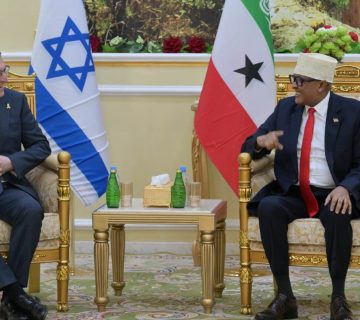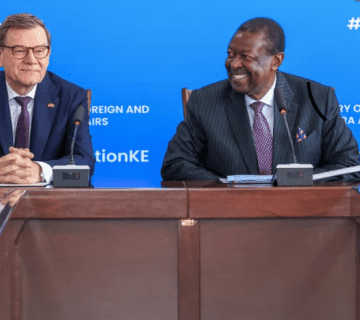The BRICS conference, scheduled for October 22-24, 2024, brings together five major emerging economies: Brazil, Russia, India, China, and South Africa. These nations collectively account for around 42% of the global population and 25% of global GDP. The 2024 summit is expected to be a critical event that could shape future global power relations, as BRICS has long been seen as a counterweight to the traditional Western-dominated global order led by the United States of America (USA) and Europe. The conference could accelerate a potential shift towards a multipolar world, reducing Western political influence and promoting the interests of emerging economies. In the past few decades, the rise of non-Western actors has increasingly challenged existing global power dynamics. Notably, countries like India and China continue to contribute to this shift, with growing economic and military capacities. As a result, interest among developing countries in the Global South to join the BRICS alliance has steadily increased. The potential inclusion of numerous Global South countries could further reshape the global structure by shifting economic and political influence away from the West.
Background: BRICS as a Challenge to Western Dominance
The BRICS group was formed in 2009 as a coalition of five major emerging economies: Brazil, Russia, India, China, and South Africa. The initiative was established in response to global financial crises and growing dissatisfaction with Western-dominated institutions such as the G7, the World Bank, and the International Monetary Fund (IMF). The primary goal of BRICS is to create an alternative platform for economic and political cooperation among developing nations, emphasizing equal representation and multipolarity in global governance. The BRICS conference in 2024 comes at a time when the political and economic relevance of the five member states is on the rise globally. BRICS nations represent a significant portion of the world’s population, GDP, trade potential, and military strength. The increasing influence of BRICS is seen as a platform for developing countries to advance their political agendas and loosen the grip of Western influence. Over the last few decades, BRICS countries like China and India have challenged the Western-dominated global order. The combination of China and India’s economic powerhouses and Russia’s strategic influence has the potential to disrupt the still Western-dominated global power balance. BRICS advocates for a multipolar global order where international decisions are not dictated by a single Western bloc.
The Expansion of BRICS
Many developing countries see an opportunity in joining BRICS to gain independence from the Western economic or foreign political grip. Among the countries showing interest in pitching for membership during the next BRICS conferences are several ASEAN (Association of Southeast Asian Nations) states, as well as Latin American and African nations. Most notably, Malaysia requested membership in BRICS+ in 2024. Other economical rising countries in the Global South have also shown significant interest in joining BRICS, hoping to benefit from a political platform different from the Western one. Some countries, like Turkey and Serbia, which are still trying to qualify for European Union membership, have also expressed interest in potentially joining BRICS. Many of these countries, former Western colonies, have experienced strong Western influence and share the view that their economic and political agendas are still dictated by Western powers to a large extend. BRICS presents an opportunity to install a new global power dynamic independent of the West. For example, Cuba is looking to break free from U.S. sanctions that have stifled its growth for decades. BRICS membership offers Cuba the chance to establish new financial ties with major economies like China, Russia, and India, which could facilitate economic recovery and growth. Diplomatically, BRICS aligns with Cuba’s anti-Western ideology, providing a platform to push for greater general representation of the Global South in global governance and politics.
European Countries’ potential BRICS Memberships
BRICS is not only considered a viable opportunity to reduce Western influence in the Global South. It is now seen as a valid alternative to Western international alliances that tend to exclude countries that do not align with Western political doctrines. Even within Europe, interest in joining BRICS has arisen in countries like Serbia and Turkey, which have never been fully integrated into the European community. Serbia, a key player in the Balkans, has historically maintained a non-aligned foreign policy, especially during the Cold War as part of the Non-Aligned Movement (NAM). Joining BRICS would signal Serbia’s growing pivot towards supporting a multipolar global political order. It would also give Serbia greater leverage in balancing its relations with the West while pursuing closer economic and political ties with the Global South. Turkey occupies a unique position in global geopolitics, straddling the East and West both geographically and politically. As a NATO member, Turkey has been a key ally of the West, while maintaining strong ties with emerging powers like Russia and China. Turkey’s strategic location at the crossroads of Europe, Asia, and the Middle East gives it significant leverage in global affairs, particularly in energy transit, trade routes, and military alliances.
Implications for Global Power Dynamics
The potential inclusion of countries like Serbia, Cuba, and Turkey in BRICS reflects the potential for a shift towards a multipolar world where global influence is more evenly distributed across various regions. The expansion of BRICS signals a move away from the unipolar dominance of the U.S. and its Western allies, with emerging powers from the Global South gaining greater influence in global governance. This transition challenges long-established global hierarchies and power centers dominated by the West. A global powerhouse like Turkey, which is one of the most powerful military forces and bridges Europe and the East, joining BRICS would have a significant impact on global power dynamics. A Turkish BRICS membership would strengthen BRICS’ influence in Europe and the Middle East, challenging Western-led institutions like NATO and the EU significantly. As BRICS nations expand their influence, they are likely to create new alliances and economic partnerships that challenge the dominance of Western-centric economic, political and military structures, potentially shifting the world from a unipolar to a multipolar order, opening space for rising Global South countries.
Photo Credits: Reuters
Laurence Jost is a Researcher at the HORN Institute
The views expressed in this article are those of the authors and they do not necessarily reflect the position of the HORN Institute.



